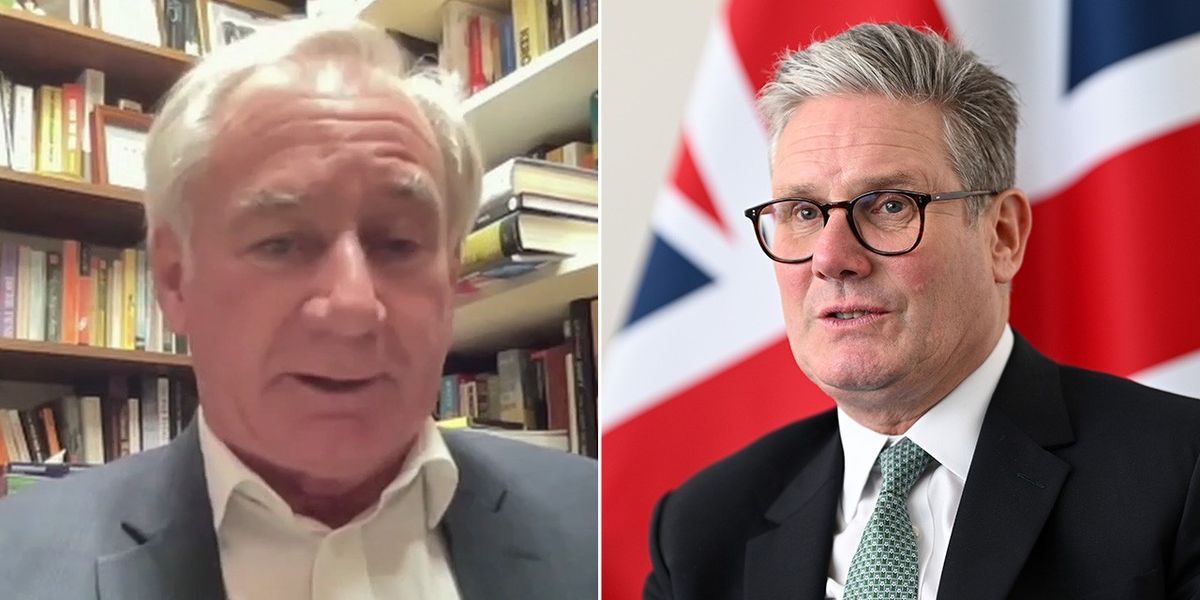Labour’s VAT Policy on Private Schools: A Controversial Stance
In a recent discussion on GB News, Labour grandee Geoff Hoon defended his party’s contentious proposal to impose Value Added Tax (VAT) on private school fees. This policy has sparked significant debate, particularly given Hoon’s own background as a beneficiary of private education, which he received at no cost to his parents. His comments shed light on the party’s rationale behind the policy and the broader implications for the education system in the UK.
The Rationale Behind the VAT Proposal
Hoon articulated that the Labour Party’s stance on charging VAT on private school fees is fundamentally a "matter of principle." He argued that parents who choose to send their children to private institutions are currently enjoying a taxpayer subsidy, which he believes is unjust. "The reality is that this affords a tax break to private education, and the taxpayer is subsidising private education," Hoon stated, emphasizing the need for a fairer distribution of educational funding.
This argument is particularly relevant in the context of rising private school fees, which have reportedly increased at a rate that outpaces inflation. Hoon pointed out that despite these rising costs, the number of families opting for private education has remained stable, suggesting that the financial burden does not deter parents from making this choice.
The Controversial Report
Adding another layer to the debate, it was revealed that a crucial report used by Labour to justify the VAT proposal was authored by Luke Sibieta, a close friend of government minister Matthew Pennycook. This connection raised eyebrows and led to questions about the impartiality of the research. However, an IFS spokesperson defended the report, asserting that it adheres to the highest standards of empirical analysis and is politically independent.
Hoon addressed these concerns, stating that the findings of the report are valid and reflect the current landscape of private education in the UK. He maintained that the rising fees and the lack of significant impact on enrollment numbers support the need for the proposed VAT.
Personal Experience and Policy Exemptions
Interestingly, Hoon’s personal experience with private education adds a unique perspective to the discussion. He revealed that he attended a private school on a full scholarship funded by the local education authority, meaning his parents did not incur any costs. "I went to a private school, yes. The reality was, I got a scholarship paid for by the local education authority," he explained. This background has led some critics to question his stance, suggesting that it may be hypocritical for someone who benefited from private education to advocate for a policy that could disadvantage others.
Despite his own history, Hoon expressed support for potential exemptions within the VAT policy, particularly for children with educational difficulties. He acknowledged the importance of ensuring that vulnerable students receive the support they need, stating, "I think the important exemption that the government have indicated in relation to children with educational difficulties, I think that’s quite right."
A Call for Broader Assistance
In addition to advocating for exemptions, Hoon suggested exploring further assistance for less affluent families struggling to pay private school fees. His comments reflect a recognition of the financial challenges many families face, even as he maintains that the principle of applying VAT to private school fees is sound. He argued that this approach aligns with broader VAT rules on services, promoting a more equitable educational landscape.
Conclusion: A Divisive Issue
The debate surrounding Labour’s VAT proposal on private school fees is emblematic of broader discussions about educational equity and funding in the UK. While Hoon’s defense of the policy is rooted in principles of fairness and accountability, it raises complex questions about the role of private education and the responsibilities of taxpayers. As the conversation continues, it remains to be seen how this policy will evolve and what impact it will have on families and the education system as a whole.
